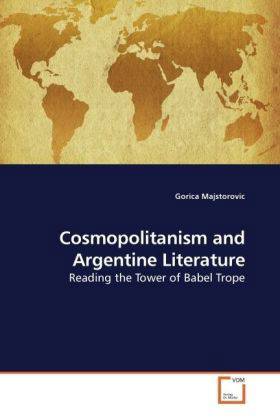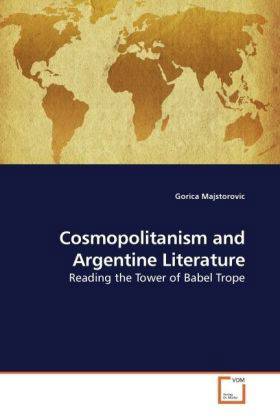
- Afhalen na 1 uur in een winkel met voorraad
- Gratis thuislevering in België vanaf € 30
- Ruim aanbod met 7 miljoen producten
- Afhalen na 1 uur in een winkel met voorraad
- Gratis thuislevering in België vanaf € 30
- Ruim aanbod met 7 miljoen producten
Zoeken
Cosmopolitanism and Argentine Literature
Reading the Tower of Babel Trope
Gorica Majstorovic
Paperback | Engels
€ 58,45
+ 116 punten
Omschrijving
This study addresses Argentine cosmopolitanism by analyzing the use of the Tower of Babel and Babylon tropes in the Argentine literature of the 1920s and 30s. Chapter 1 focuses on Victoria Ocampo s use of the Tower of Babel trope in order to mediate between cosmopolitanism and national reflection. The first part of Chapter 2 underlines the contrast between the Argentine multilingual contexts and Capdevila s Pan-Hispanism; the second part studies language mixture and immigration in Discépolo's plays. Chapter 3 looks at the construction of Inter- Americanism in the early issues of Sur. The first part of Chapter 4 reads Roberto Arlt s essay Babel and his first novel, El juguete rabioso, in order to examine the changing urban modernity of Buenos Aires. The second part discusses the Tower of Babel as travel metaphor in Arlt s writing from Spain and North Africa. While revealing the contradictions and affinities between cosmopolitanism and national belonging this book offers new insight into the areas of Postcolonial and Cultural Studies in Latin America.
Specificaties
Betrokkenen
- Auteur(s):
- Uitgeverij:
Inhoud
- Aantal bladzijden:
- 152
- Taal:
- Engels
Eigenschappen
- Productcode (EAN):
- 9783639199567
- Uitvoering:
- Paperback

Alleen bij Standaard Boekhandel
+ 116 punten op je klantenkaart van Standaard Boekhandel
Beoordelingen
We publiceren alleen reviews die voldoen aan de voorwaarden voor reviews. Bekijk onze voorwaarden voor reviews.







